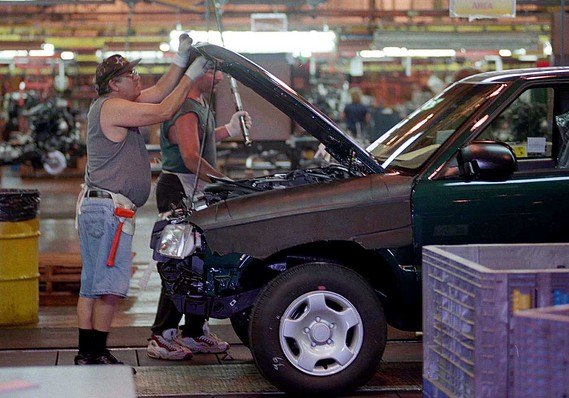Japanese Parts Fallout Hits GM Plant In Louisiana

We had predicted early on that “the disaster in Japan could have a major impact” not just on the Japanese auto industry, but on the auto industry worldwide. If anyone had silently hoped (you can’t say these things aloud) that the disaster over there would provide breathing room for the car industry over here, then get ready for a disappointment. First automaker to be affected over here by the Japan syndrome is GM.
Reuters has it that GM will suspend production at its Shreveport Assembly plant in Louisiana next week. The reason: Parts missing due to the crisis in Japan.
In Shreveport, nearly 1,000 workers build the Chevrolet Colorado and GMC Canyon trucks.
GM says it has enough units in stock and hopes to resume production ASAP. According to Reuters, “all the automaker’s other North American plants are operating.” So far.
The Shreveport GM plant is scheduled to shutdown permanently by June of 2012. GM says the current closure is not permanent.
Marketwatch says that GM’s suspension of its Louisiana plant “could be just the beginning, considering the intricate web of shared components in the car business.”
Each year, Japan exports 2.5 million engines and 8.5 million transmissions, say Marketwatch. “But even more troublesome could be the electronics front. Japan accounts for a sizeable chunk of the technology in cars, including 20% of worldwide semiconductor production.”
According to the Houston Chronicle, GM won’t say which parts it’s short on, “but both pickups use a five-speed manual transmission made by Japanese supplier Aisin Seiki Co.” writes the paper.

Bertel Schmitt comes back to journalism after taking a 35 year break in advertising and marketing. He ran and owned advertising agencies in Duesseldorf, Germany, and New York City. Volkswagen A.G. was Bertel's most important corporate account. Schmitt's advertising and marketing career touched many corners of the industry with a special focus on automotive products and services. Since 2004, he lives in Japan and China with his wife <a href="http://www.tomokoandbertel.com"> Tomoko </a>. Bertel Schmitt is a founding board member of the <a href="http://www.offshoresuperseries.com"> Offshore Super Series </a>, an American offshore powerboat racing organization. He is co-owner of the racing team Typhoon.
More by Bertel Schmitt


































Comments
Join the conversation
Do you think as Rome burned, Niro asked his slaves if the fire would effect the availability of grapes?
UAW: we have fat workers.